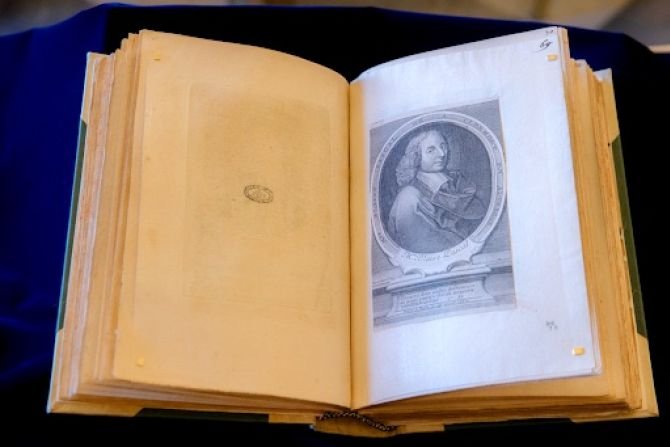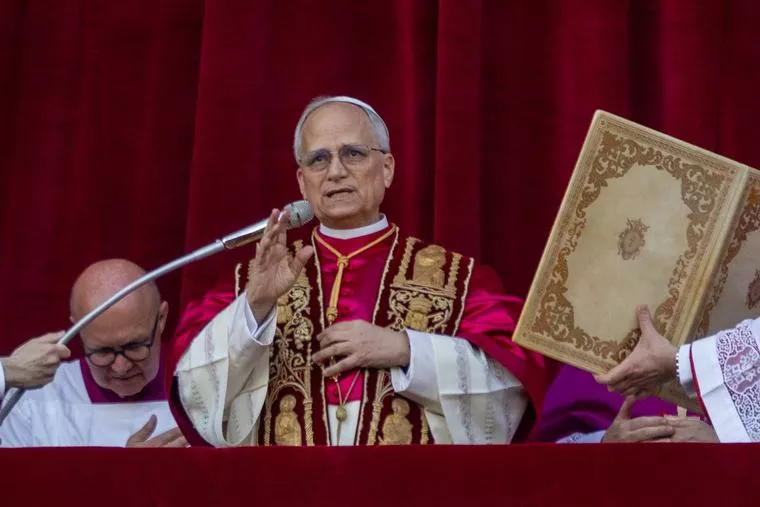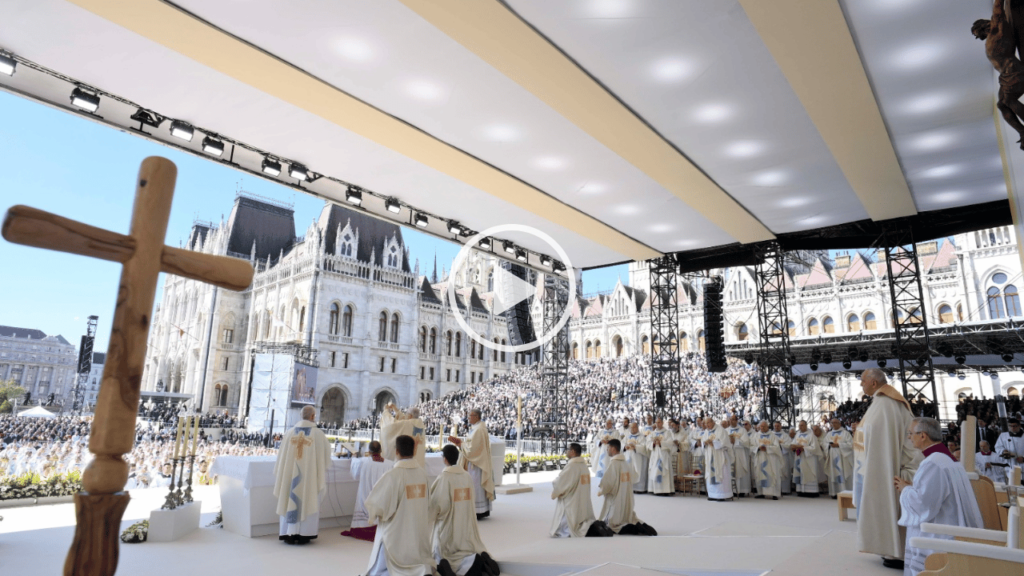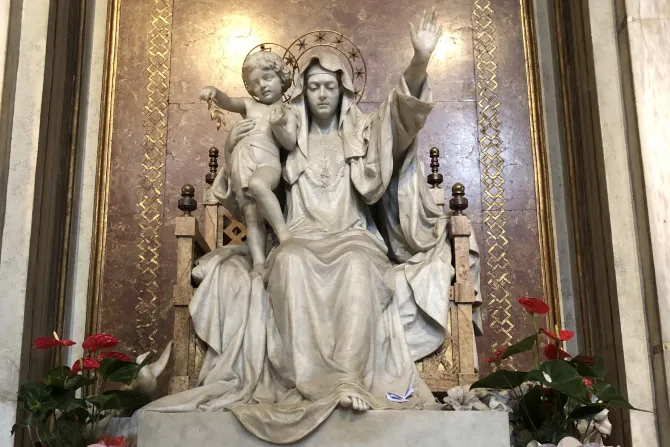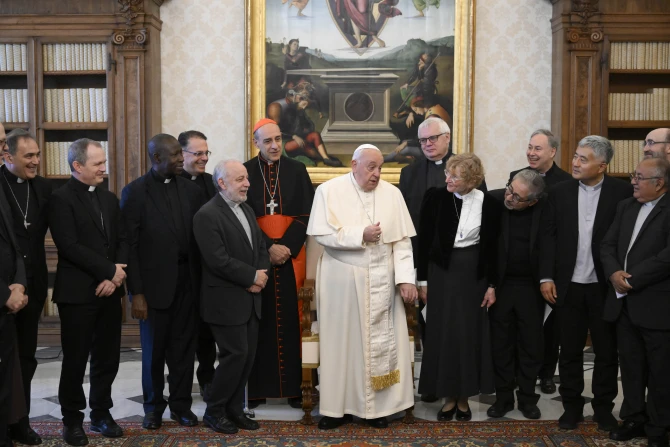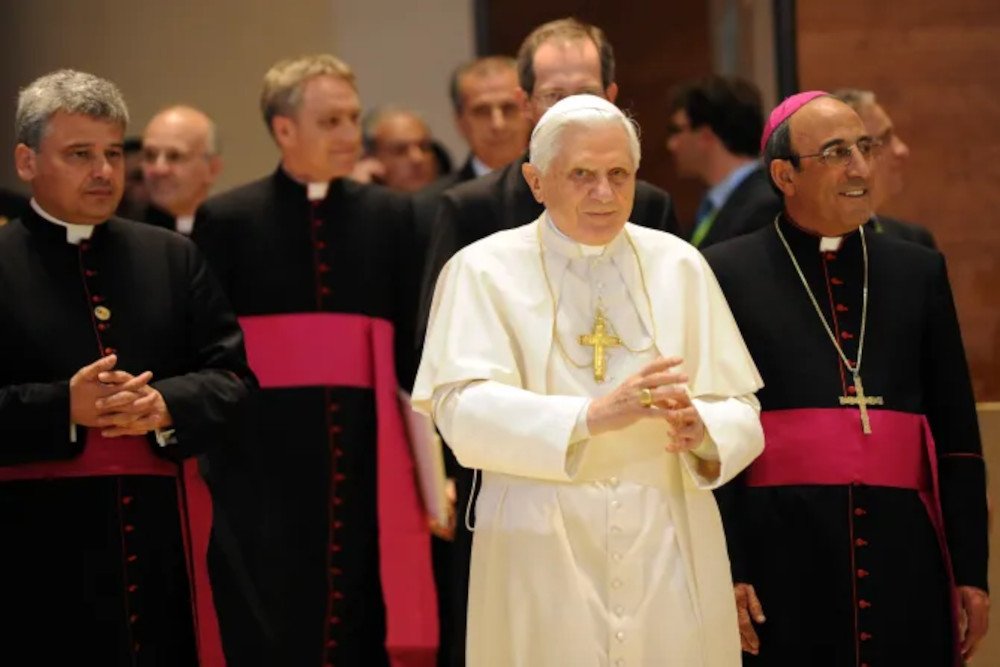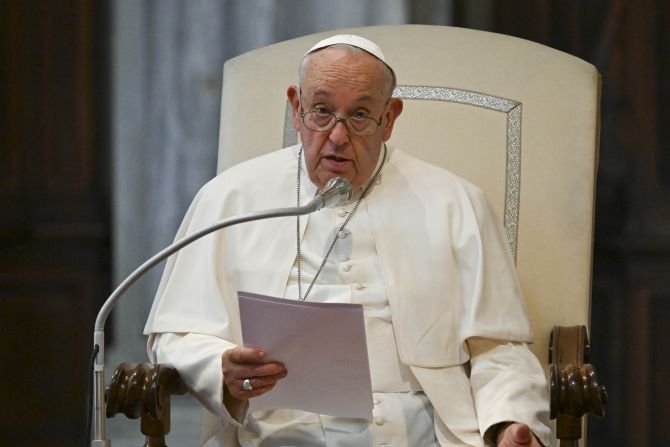On the 400th anniversary of the birth of Blaise Pascal, the Vatican Library displayed first editions of some of his most famous works.
Pope Francis published an apostolic letter earlier this week praising the 17th-century French philosopher, mathematician, and scientist as “a tireless seeker of truth.”

To mark the quatercentenary of Pascal’s birth on June 19, 1623, the Vatican Apostolic Library showed journalists its first edition of Pascal’s “Pensées,” his most well-known work of Christian apologetics published posthumously from his notes and manuscript fragments, from 1670.

The Vatican Library also showcased its first edition of the “Provincial Letters,” Pascal’s highly critical letters of the Jesuits written to defend the Jansenists in a dispute over the question of God’s grace and the relationship between grace and human nature, specifically our free will.

The series of 18 letters were first published as pamphlets between 1656 and 1657. Pascal published them under the pseudonym Louis de Montalte. The letters present a defense of the Jansenist Antoine Arnauld from Port-Royal-des-Champs.

Father Mauro Mantovani, the prefect of the Vatican Library, also showed journalists the Vatican’s copy of a Latin translation of the “Provincial Letters,” published in 1658. The book was translated by Pierre Nicole, a well-known French Jansenist at the time.

The Vatican Library preserves thousands of manuscripts and over 1 million printed books, most of which are available for study by researchers and scholars.
The modern iteration of the Vatican Apostolic Library is believed to have begun in the 14th century, though there is evidence that the Catholic Church has preserved a library and archive from as early as the fourth century.
A papal bull in 1475 opened the library and archive to study by scholars. Archival material was formally separated from the library in the early 17th century and entrusted to the Vatican Secret Archives (now called the Vatican Apostolic Archive).

Pope Francis’ letter on Blaise Pascal is titled “Sublimitas Et Miseria Hominis,” which means “The Grandeur and Misery of Man.”
“From childhood, Pascal devoted his life to the pursuit of truth. By the use of reason, he sought its traces in the fields of mathematics, geometry, physics, and philosophy, making remarkable discoveries and attaining great fame even at an early age,” Pope Francis wrote in the letter.
“Yet he was not content with those achievements. In a century of great advances in many fields of science, accompanied by a growing spirit of philosophical and religious skepticism, Blaise Pascal proved to be a tireless seeker of truth, a ‘restless’ spirit, open to ever new and greater horizons.”
“Pascal’s brilliant and inquisitive mind never ceased to ponder the question, ancient yet ever new, that wells up in the human heart: ‘What is man that you are mindful of him, the son of man that you care for him?’ (Ps 8:5).”
This article was originally published on Catholic News Agency.

